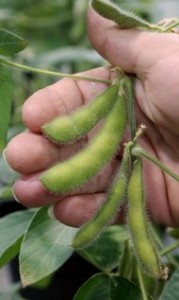 Farmers rights are a huge deal to me. My family owns a farm in Tennessee. I’m no farmer, that’s certain. But you need to know a little about farming to understand this piece. Farmers buy seeds. Farmers plant seeds. Seeds grow into plants. Plants naturally produce seeds. Got it?
Farmers rights are a huge deal to me. My family owns a farm in Tennessee. I’m no farmer, that’s certain. But you need to know a little about farming to understand this piece. Farmers buy seeds. Farmers plant seeds. Seeds grow into plants. Plants naturally produce seeds. Got it?
A common practice for farmers is to collect the seeds from the plants of their crop and replant those seeds next harvest. Now, thanks to Bowman v. Monsanto, a decision issued by the Supreme Court today, that practice is illegal. A unanimous court said
“Under the patent exhaustion doctrine, Bowman could resell the patented soybeans he purchased from the grain elevator; so too he could consume the beans himself or feed them to his animals. Monsanto, although the patent holder, would have no business interfering in those uses of Roundup Ready beans. But the exhaustion doctrine does not enable Bowman to make additional patented soybeans without Monsanto’s permission.”
I’ve covered this case before. Since my piece, many other legal writers have referred to Bowman’s position as the “blame the bean” defense. Note that this is a very sweeping generalization of Bowman’s position. Bowman purchased soy beans. These soy beans were purchased from local farmers by a grain mill. Bowman is presumed to have known that some of those beans would contain the intellectual property copyright of Monsanto’s genetically altered material.
He argued he planted seeds and seeds did what seeds do. They grow and make plants. Plants with seeds. But he had every right to do so, according to any pragmatic reading of the exhaustion doctrine. Now, anything you make from the intellectual property of another is likely a little bit theirs.
Those of us that support small business owners, farmers, and entrepreneurs were hoping that all of our efforts based wouldn’t be somehow the intellectual property of the major multi-national corporation that provides us with the seed. Unfortunately, that’s not the case. The Goliath that is Monsanto wins again. And now, the patent suits they’ve been filing against farmers since the 1990’s have the Supreme Court’s stamp of approval.